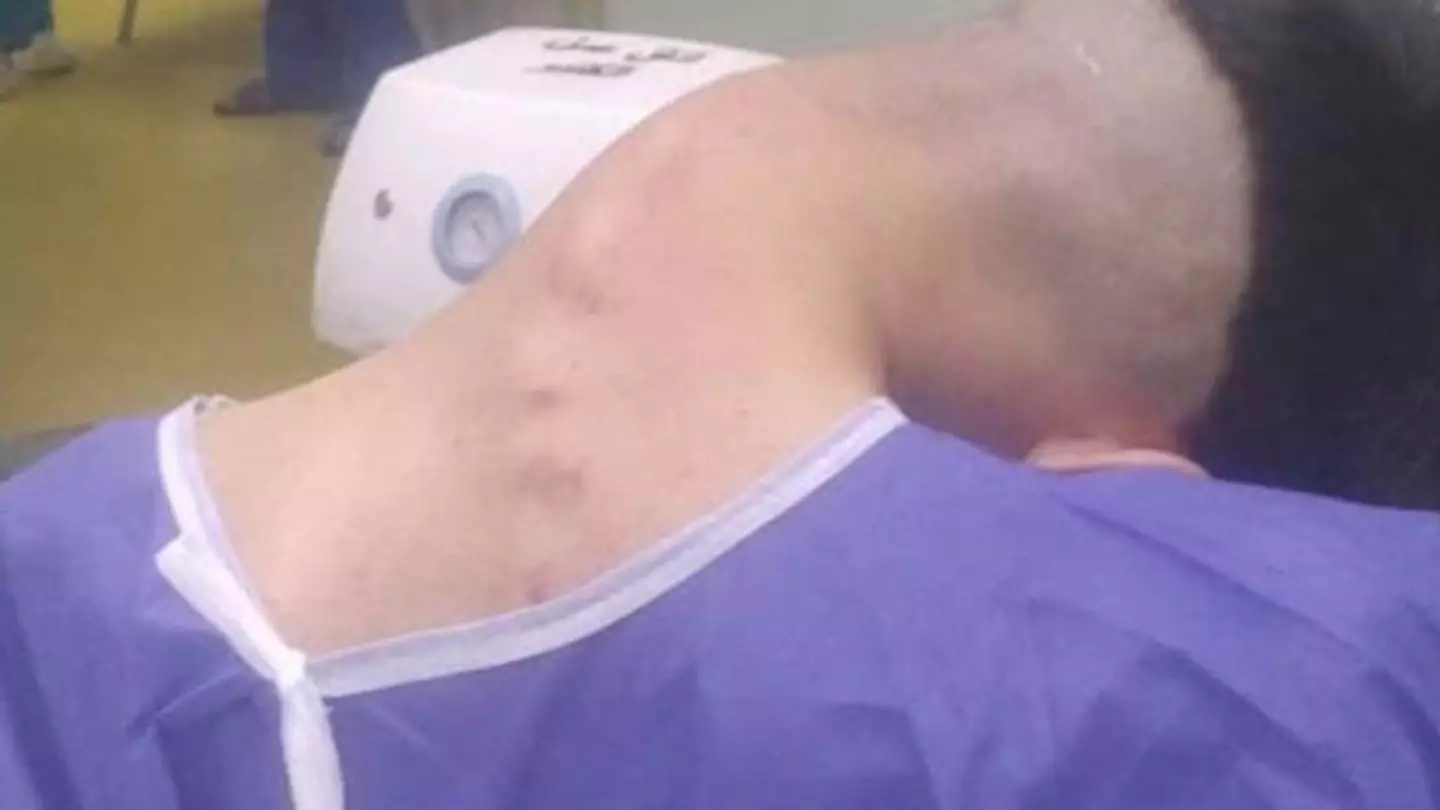
An unidentified 23-year-old man developed a rare condition known as 'dropped head syndrome' after struggling through years of substance abuse.
The young man was pictured by doctors in Iran, who captured the alarming state of his neck, which could no longer support his head.
Medics say the man's use of amphetamine (also known as speed), triggered a 'fixed kyphotic neck position', which sees his chin fall to his chest for prolonged periods of time.
He was left with an extreme bend behind in his neck after regularly taking a dangerous combination of different drugs, including heroin, opium and speed.
Advert

What doctors had to work out was whether the man's severe neck misalignment would have happened if drug abuse hadn't occurred.
They quickly found out that prior to such, there was no suggestion the man would develop such a condition.
Dr Majid Rezvani, co-author of the case study, said: "We discovered that drug abuse contributed to the uncommon development of severe complicated cervical kyphosis [excessive rounding of the upper back].'
"The drug does not have a direct effect on musculoskeletal changes', he explained.
"Instead there is an indirect effect: when the patient uses the drug, they remain in a certain position for a long time, and over months this results in musculoskeletal changes that led to kyphoscoliosis."
Also known was floppy head syndrome, dropped head syndrome is often spotted out due to the severe weakness of the neck muscles.
And while it's typically associated with neuromuscular disorders like motor neurone disease, it can also be triggered by drug abuse.
It is reported that the man in Iran was struggling with symptoms such as chronic neck pain and paresthesia for around 15 months.

He also had the feeling of tingling, numbness and pins and needles in his arms, while his own remedies didn't seem to be much help.
While it may have been obvious, a CT scan revealed the man had a severely deformed spine, though doctors said that his situation did improve slightly when he was put under general anaesthesia.
Surgery was ultimately required to remove the deformed bone, but, thankfully, the man was able to walk a day after the surgery was completed with the help of a hard collar.
The man has also since attended rehab for his drug addiction, while doctors were left extremely happy when coming to the conclusion his spine had been repositioned a few months later.
If you want friendly, confidential advice about drugs, you can call American Addiction Centers on (888) 830-7624 24 hours, seven days a week, or contact them through their website.
Topics: Health, Mental Health, Drugs, World News
